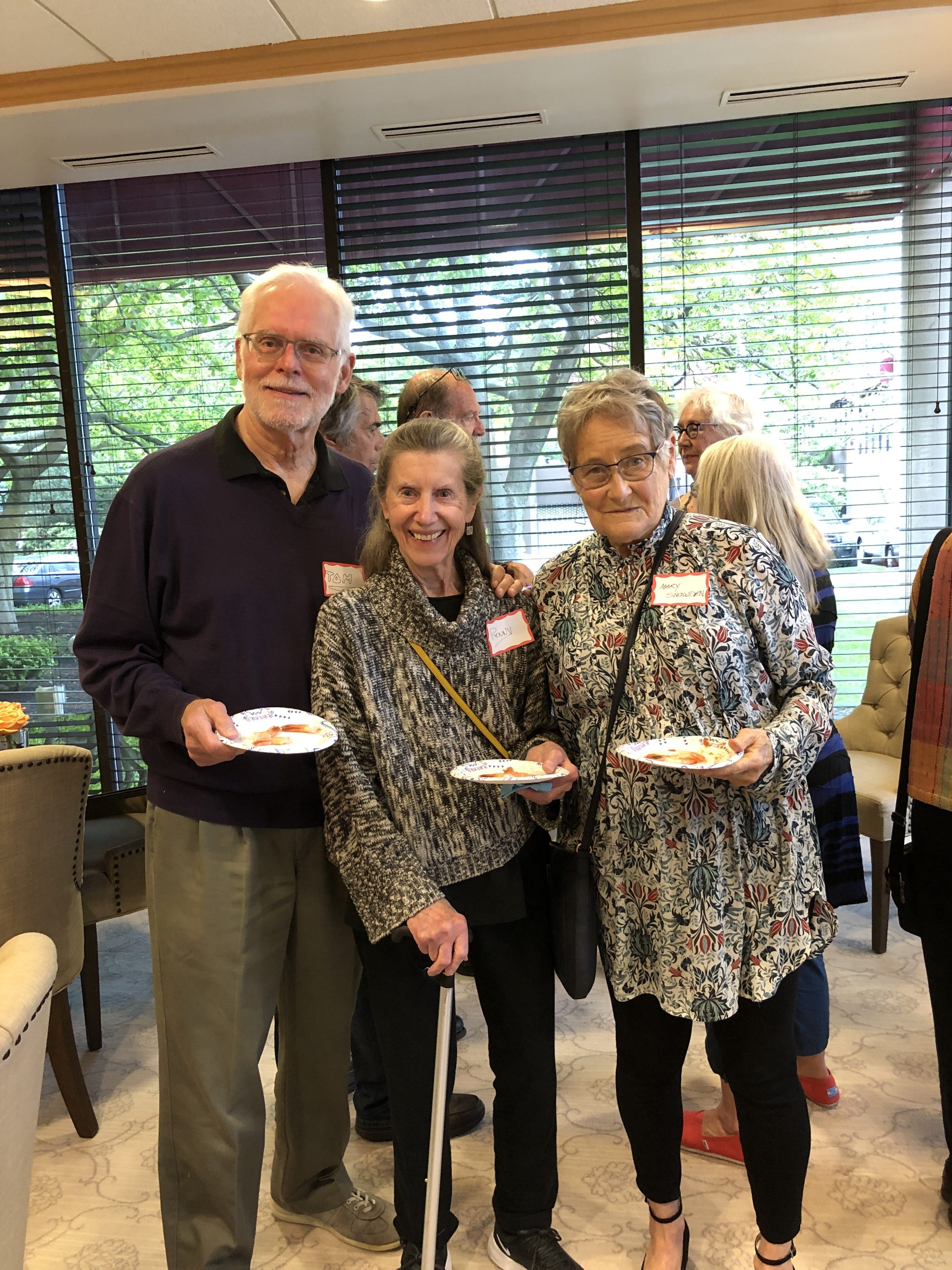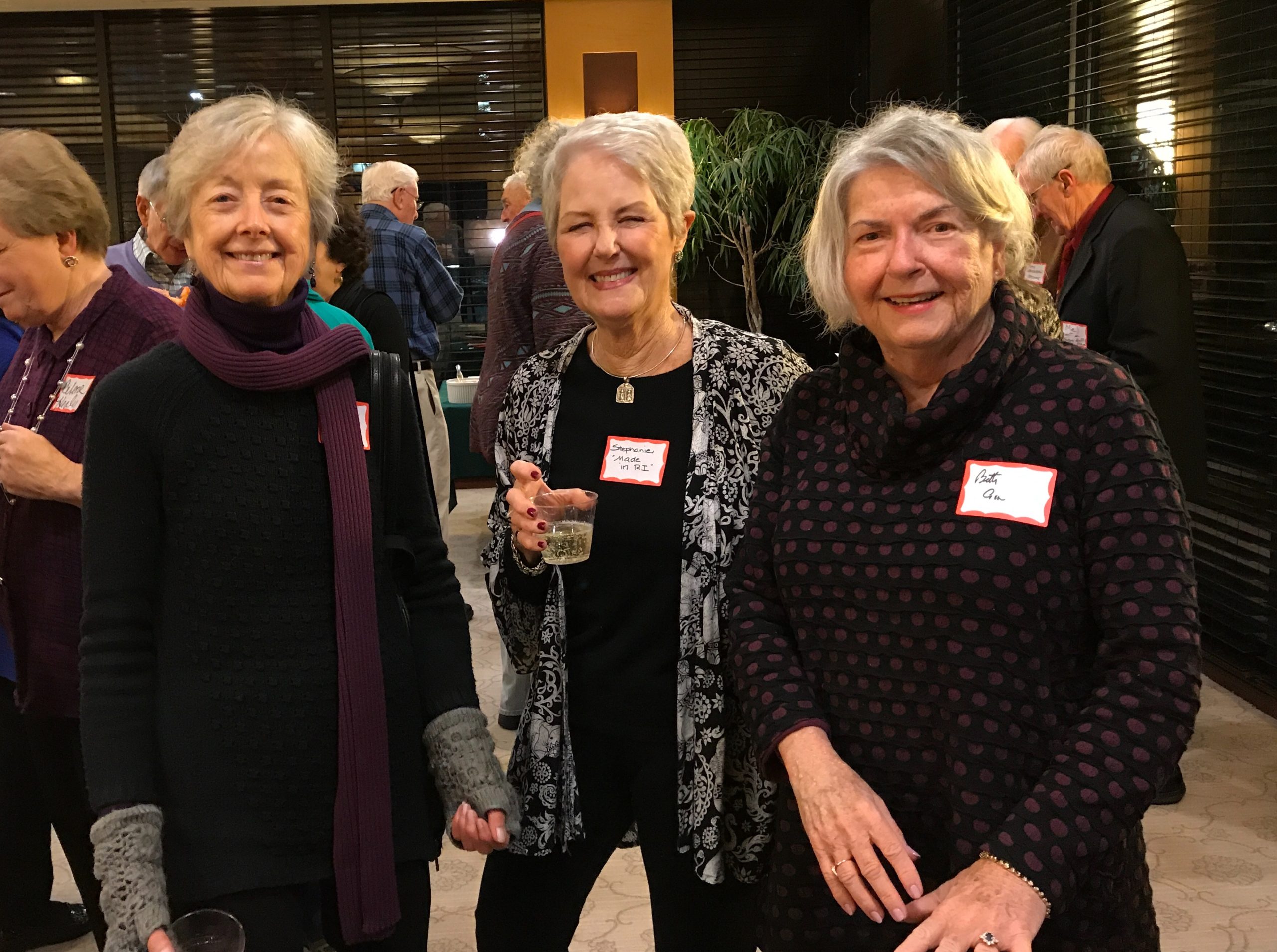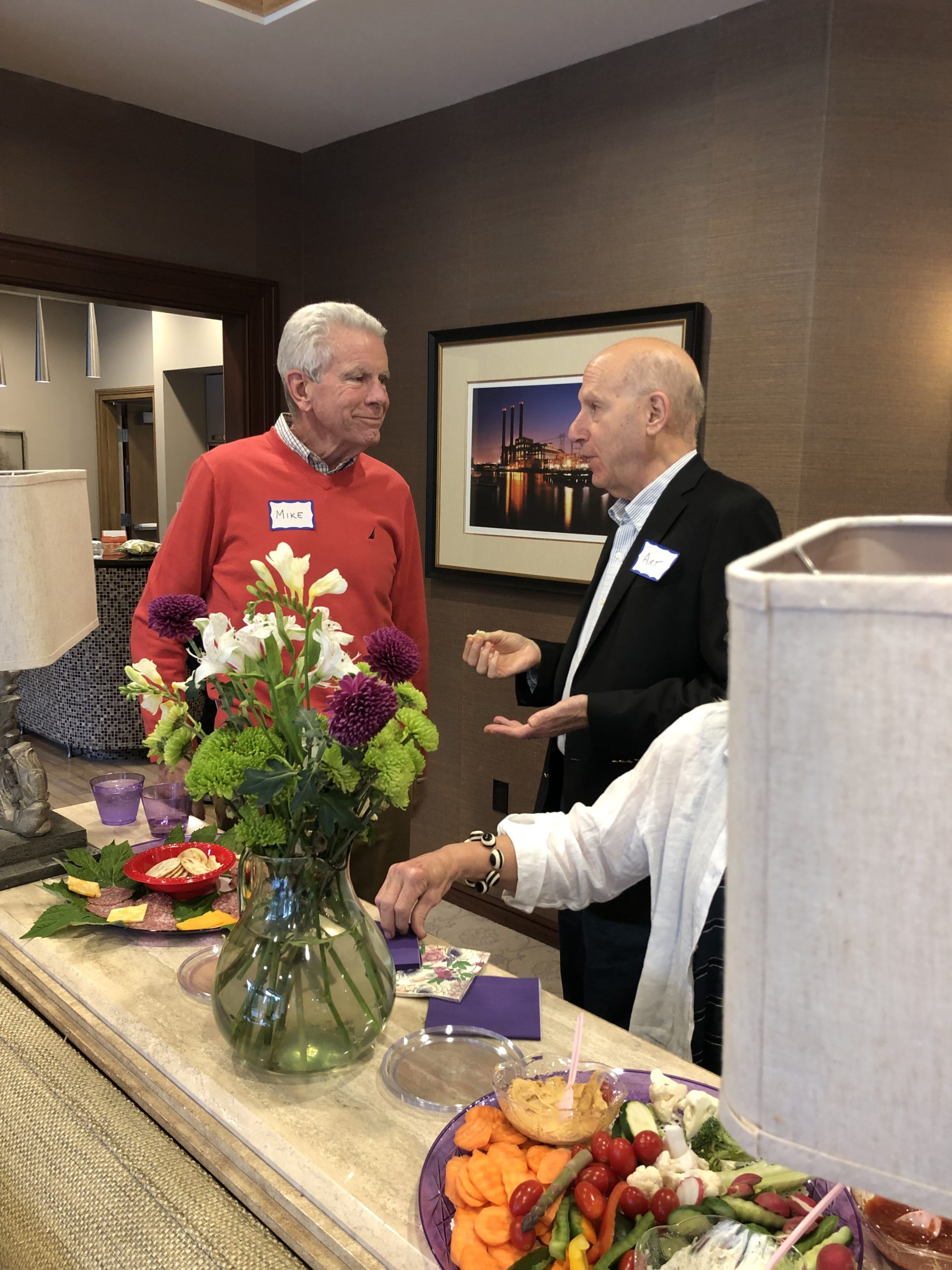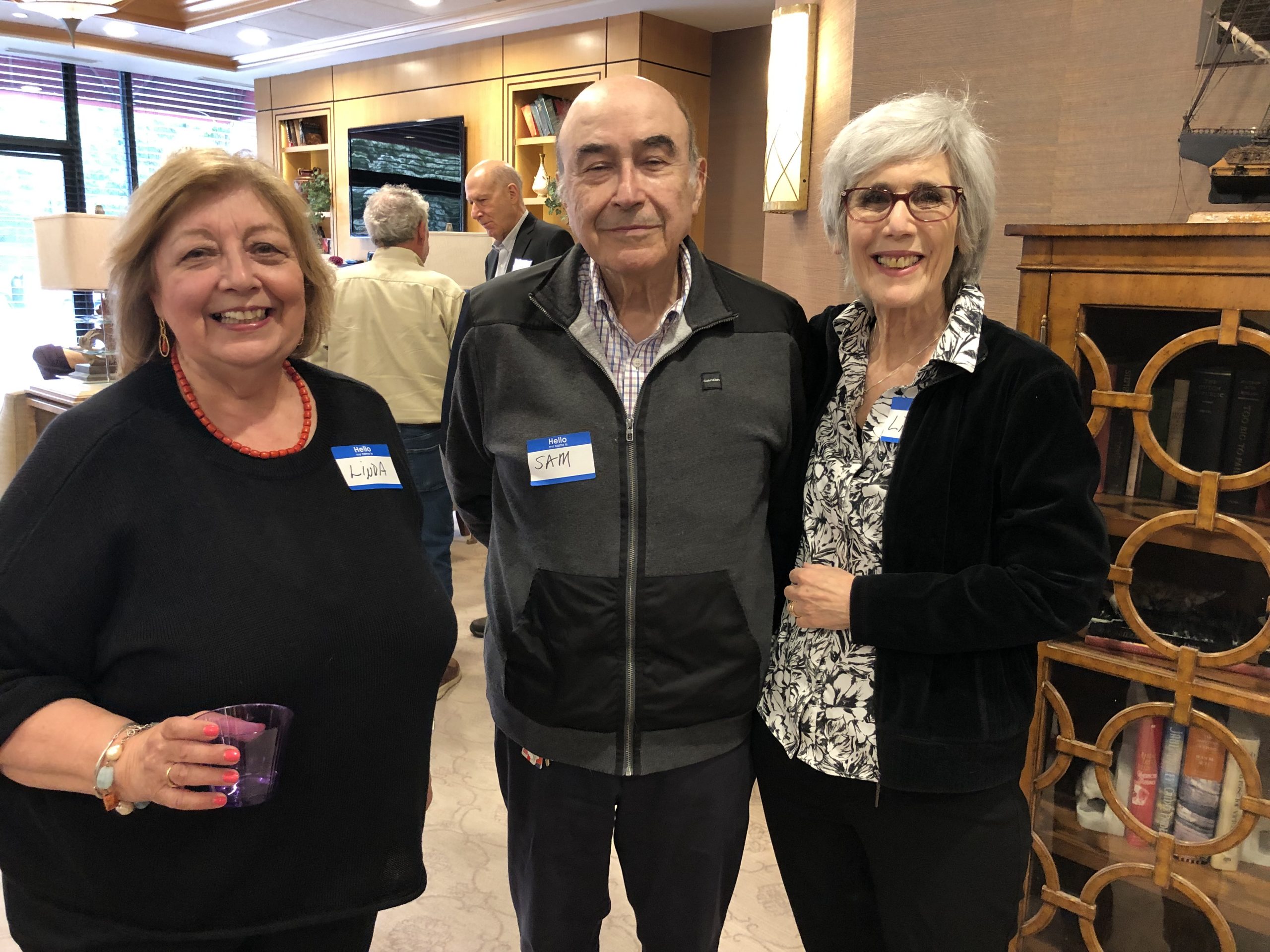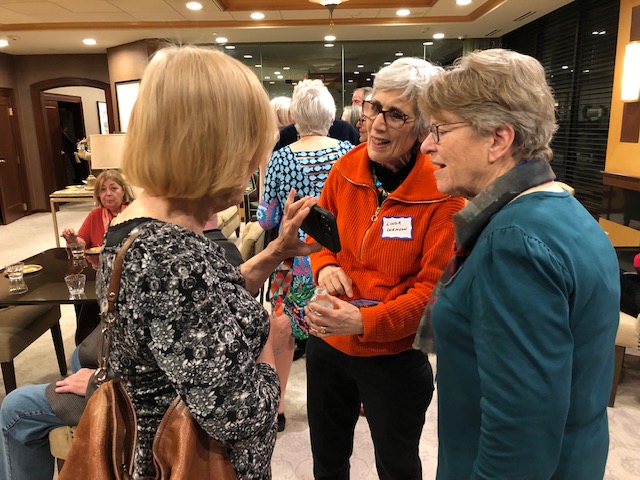
INSIDE THIS EDITION:
- FROM LLC'S FINANCE COMMITTEE: DO YOU HAVE EXPERTISE WITH QUICKBOOKS?
- CORRECTION: HOCKEY STICK CURVE by Allan Klepper
- PLEIN AIR PAINTING
- DO YOU KNOW WHAT ELSE THE CURRICULUM COMMITTEE DOES?
FROM THE FINANCE COMMITTEE
Do you have expertise with Quickbooks? The LLC Finance Committee would like to identify an LLC member that could assist us with some technical matters in the posting of expenses in Quickbooks. Please contact Dick Brush if interested.
Correction:
The editor mistakenly did not include the complete version of Allan Klepper’s poem Hockey Stick Curve in the last issue of The Lark.
Hockey Stick Curve
By Allan Klepper
Aging; despite our vim and verve,
Health, follows a hockey stick curve.
Continuing issues as we age,
Then suddenly increase with a rage.
The most dangerous of them all;
If we suffer a sudden fall.
Precursor of numerous ills;
Fractures; increase in medical bills.
Rides to Docs, and one’s daily bread.
Arrangements to be made instead.
Permanent or temporary.
Without planning, doubly scary!
Even as sturdy as we might be,
Pays to be ready with a Plan B.
Plein Air Painting
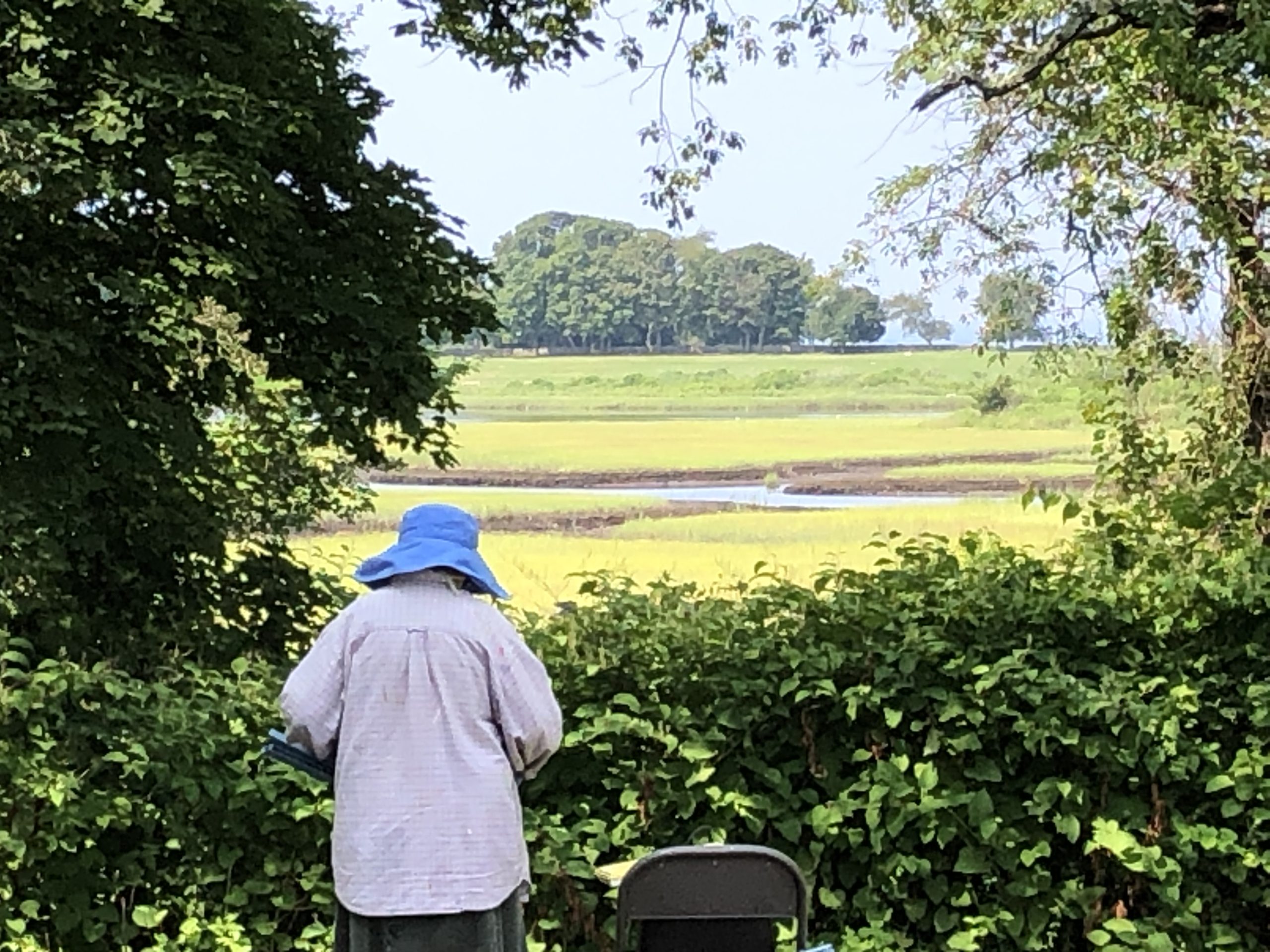
Sarah Quinn at Colt State Park
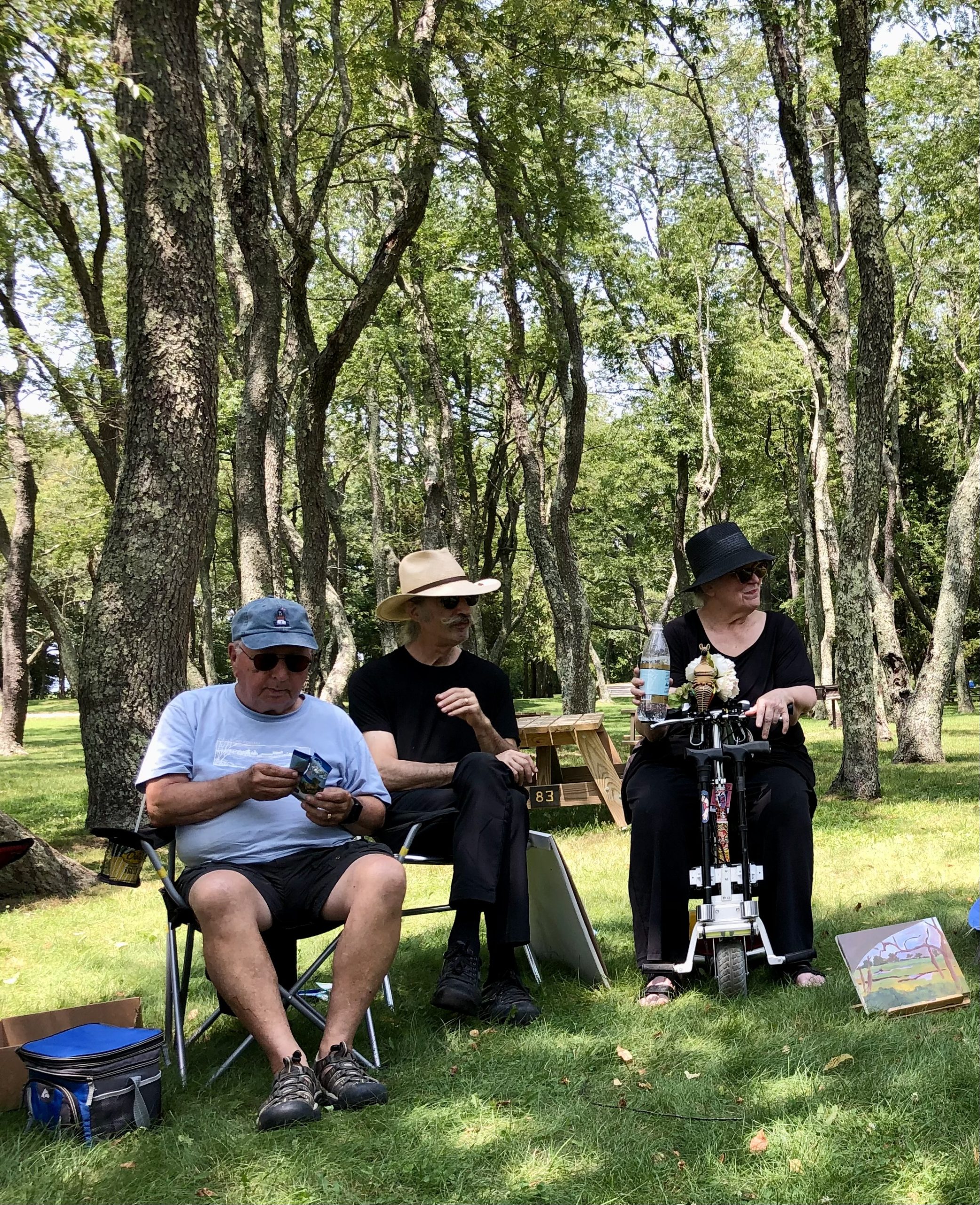
Chuck Nickles, Glenn Dubler and Nancy Dubler enjoy lunch at Colt State Park as they prepare for sharing and critiquing
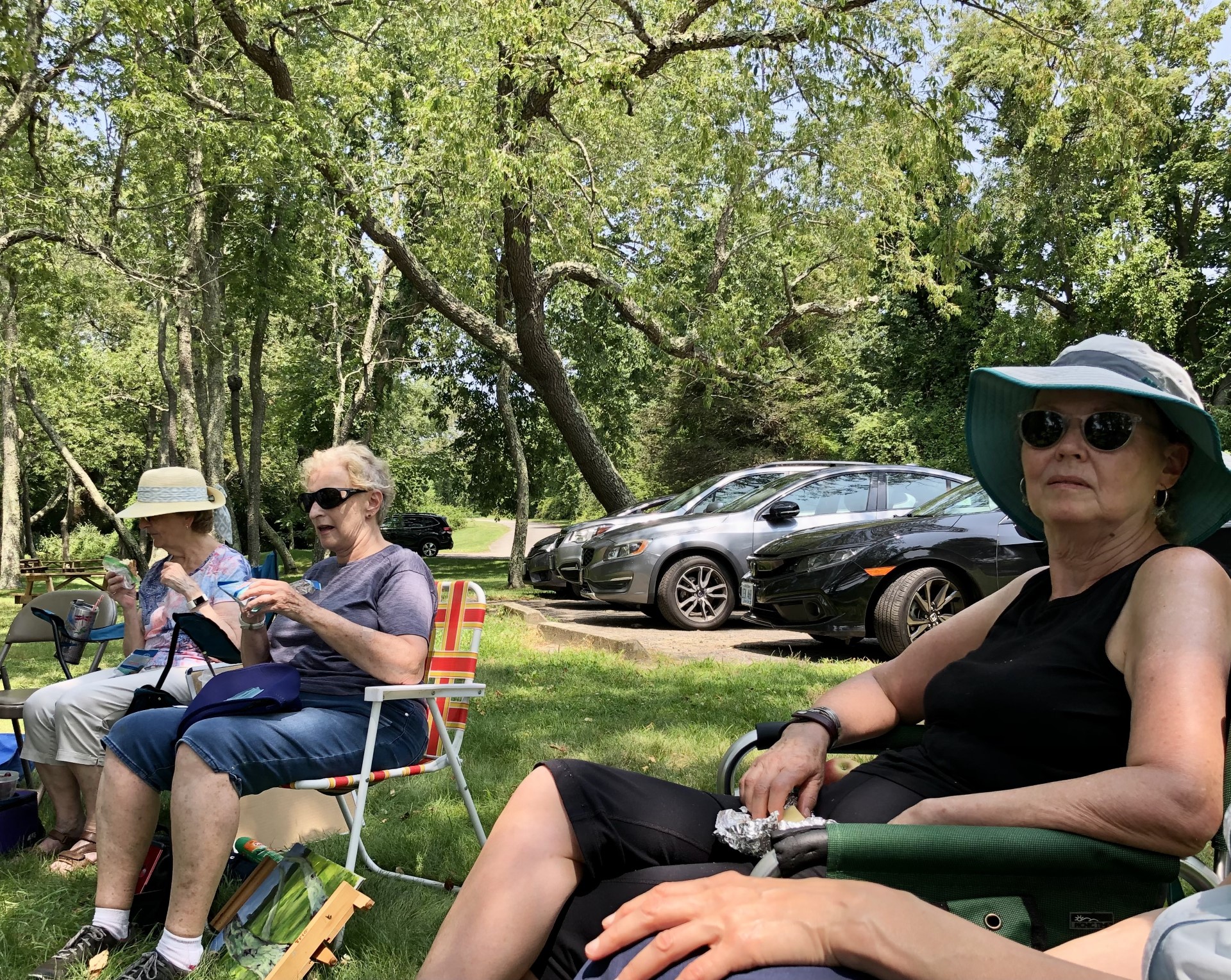
Katherine Cowett, Laura Koller and Lauren Alianiello at Colt State Park
Do You Know What Else the LLC Curriculum Committee Does?
By Catherine Hurst
Most of you probably know that the LLC Curriculum Committee, under the very capable leadership of Mike and Kathy Webster, is responsible for coming up with the wonderful courses that are offered to you, both at the Temple and via Zoom, during our four semesters a year. (In the fiscal year 2022-23, this amounted to 79 courses, with a total enrollment of 1,266 participants.)
But the Curriculum Committee not only puts together the array of courses, but also engages in a variety of other activities, and we’re spotlighting some of them here.
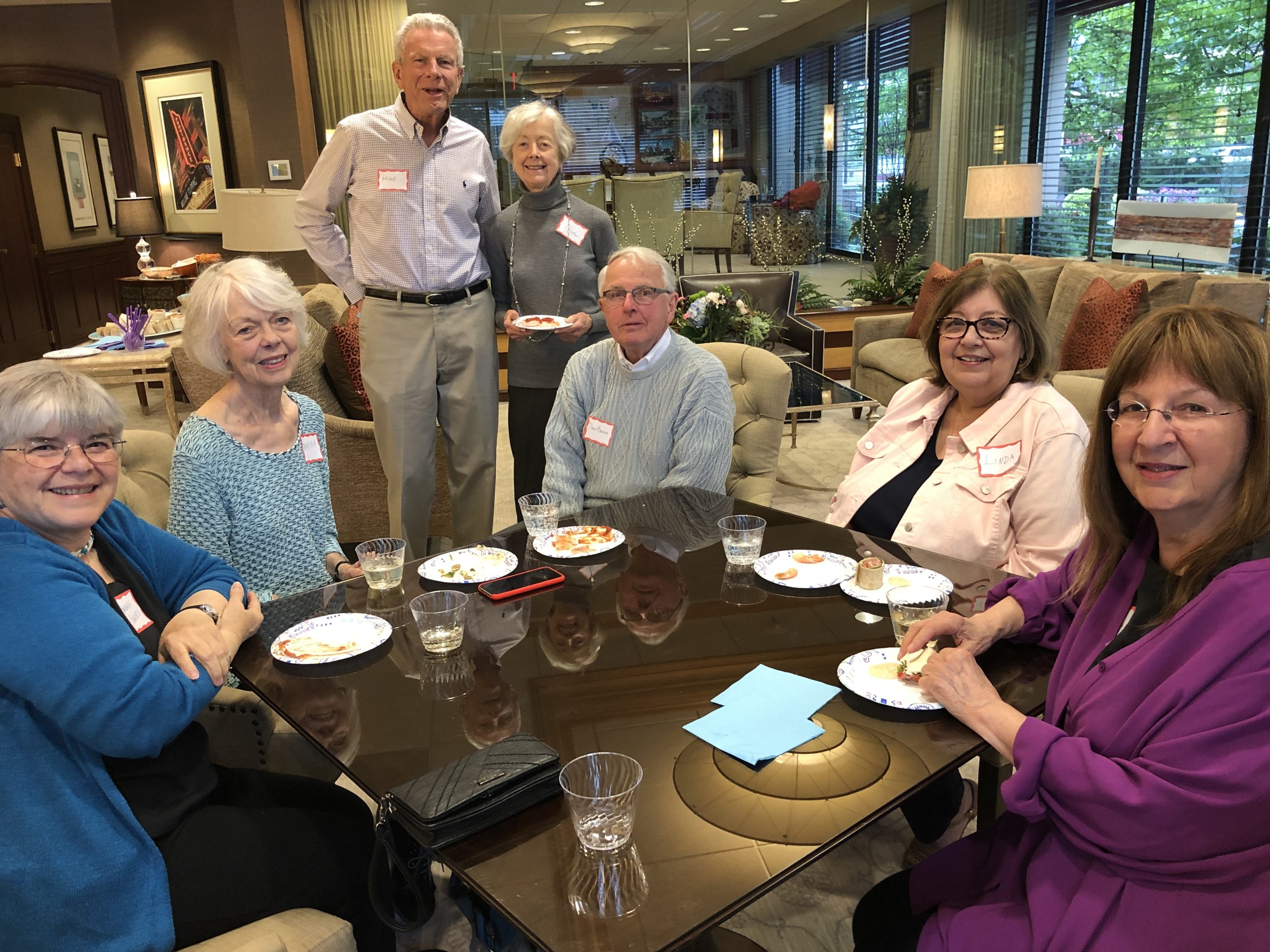
Course Evaluation Surveys
If you’ve taken a course at LLC, you’ll know that at the end of each semester LLC sends out a course evaluation survey, inviting you to assess the course(s) you just completed. We have an excellent response rate that has averaged 61% over the past two years. (Though that does mean that 39% of you are NOT responding—we hope you will respond the next time you get one of these surveys!)
We ask you a variety of questions about the course—whether it was interesting and organized, if it had a good syllabus and readings, if you felt welcome in the class and learned a lot, if technology was handled effectively, and if the course met your expectations. We also ask you to comment on what you particularly liked and what you would recommend changing.
What does the Curriculum Committee do with all this data?
First of all, the course evaluation summary for each course is sent to that course’s coordinator(s). The data is, of course anonymous, and our coordinators tell us that the information—especially the open-ended comments—is very valuable for them. It tells them where they did especially well and where they might have opportunities for improvement. Even highly rated coordinators who’ve coordinated multiple courses learn something about what worked the best in the course they just completed.
Our courses tend to get excellent evaluations. We ask you to rate each course statement on a 1-5 scale (where 5 is the best) and our average across all courses and categories runs about 4.7-4.8. But there are sometimes courses with lower scores. The Curriculum Committee discusses those courses at their regular meetings and determines if any kind of intervention is needed. Sometimes we already know the cause of a problem—coordinator illness, unforeseen technology glitches, a course that had too many participants enrolled. In other cases, a member of the Curriculum Committee may follow up with a coordinator to discuss the results. Rarely are these scores a surprise to a coordinator! If there was a problem in the class (such as a book that turned out to be not right for the audience, class discussions that went a bit awry, too big a scope selected for the material) the coordinator is usually aware of it. But a discussion airs out the topic and opens the door for improvement in subsequent courses.
We also use this information to determine other actions that LLC needs to take. After seeing a variety of comments about technology in previous semesters, we added a technology question to the survey this semester. The responses to those questions are then forwarded to the Digital Technology Committee so that they can monitor rising (or falling) scores and be aware of any emerging issues.
Curriculum Committee Workshops/Training
We also look at categories that tend to get lower scores on the survey with an eye towards doing a better job training our coordinators. Lower than average scores on the syllabus question a few years ago prompted us to add a syllabus preparation workshop to our training schedule twice a year. Members of the Curriculum Committee and other experienced coordinators conduct this three-hour program which includes general guidelines about syllabus development along with one-on-one feedback on their syllabi to course coordinators. The training is held a couple of months before the semester starts so that participating coordinators have time to enhance their syllabi before their courses begin. Here’s a comment from one participant at the most recent syllabus workshop in June: “In the two breakout sessions to review our syllabi, I received several suggestions that were VERY helpful. These comments definitely helped to improve certain aspects of my syllabus and my introductory PP presentation I'm planning on the first day. Thank you!”
We also use information from the survey to inform our other training programs. We hold a coordinator kickoff event twice a year (before the start of the spring and fall semesters) to offer tips and techniques to coordinators, and a chance for them to engage with each other to learn how to be better coordinators. Recent presentations and discussions in these workshops have been directly inspired by survey comments. For example, we’ve incorporated material on techniques for collaborative learning (not just presentations!), how to offer a more organized course, how to manage discussions, what to do if there’s a problem (bad weather, a presenter doesn’t show up, technology challenges, a class member who wants to dominate the discussions), what to do in class on the first and last day (often survey comments provide great examples of these), how participants develop expectations about a class and what coordinators can do to guide, and then to meet, those expectations.
Other Steps
We also learn about very effective coordinators from the surveys, enabling us to invite them to participate as leaders in training sessions and/or encourage them to offer more courses or to partner with new coordinators to help pass along their expertise.
Sometimes there’s a surprising bit of information in the survey comments that results in other action being taken. Comments about physical aspects of classes (temperature at the Temple, classes that are too large, etc.) can be followed up on with the appropriate audiences. Early on during the pandemic, helpful comments about Zoom on the surveys helped us to improve Zoom capabilities for coordinators and develop better Zoom training programs.
We’ve also added material to the LLC website in response to other questions/issues raised by the surveys.
So the next time you get one of these surveys, take a few minutes to provide your thoughtful response—especially your comments. We pay attention to them all!
Coordinator parties over the years (Photography by Kathy Webster):
